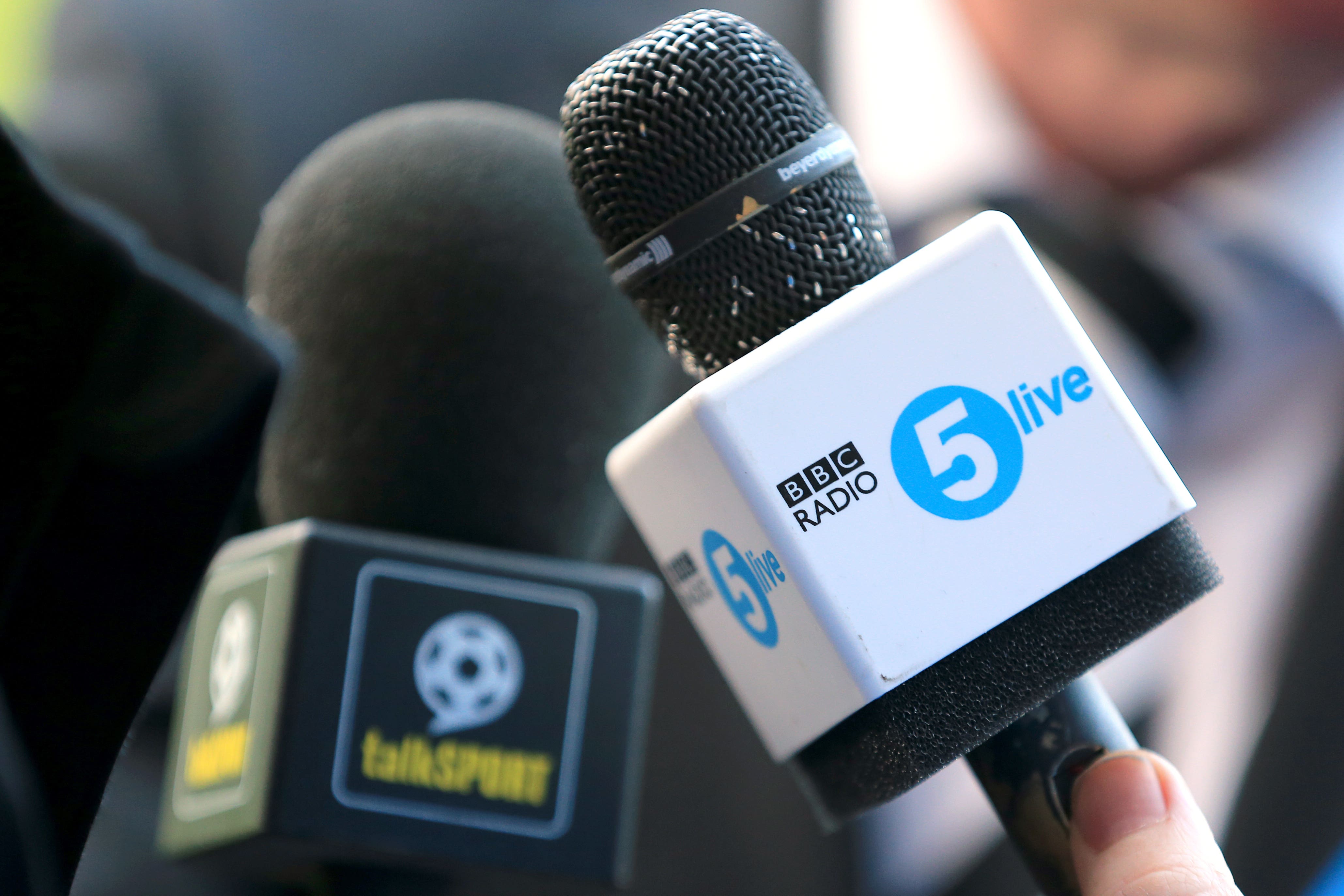BBC’s share of radio listening falls to lowest point since 2021, figures show
The figure has been above 50% only once since the reporting of radio listening figures resumed in the summer of 2021.

Your support helps us to tell the story
From reproductive rights to climate change to Big Tech, The Independent is on the ground when the story is developing. Whether it's investigating the financials of Elon Musk's pro-Trump PAC or producing our latest documentary, 'The A Word', which shines a light on the American women fighting for reproductive rights, we know how important it is to parse out the facts from the messaging.
At such a critical moment in US history, we need reporters on the ground. Your donation allows us to keep sending journalists to speak to both sides of the story.
The Independent is trusted by Americans across the entire political spectrum. And unlike many other quality news outlets, we choose not to lock Americans out of our reporting and analysis with paywalls. We believe quality journalism should be available to everyone, paid for by those who can afford it.
Your support makes all the difference.The BBC’s share of the time people spend listening to radio in the UK has fallen to its lowest level since the Covid-19 pandemic, though audiences remain steady at some of its flagship networks, figures show.
The corporation’s stations accounted for 46.3% of total listening in the first three months of 2023, down from 47.1% in the previous quarter and 49.2% in the same period in 2022.
The figure has been above 50% only once since the reporting of radio listening figures resumed in the summer of 2021 after a break at the start of the pandemic, according to data from the research body Rajar.
Audiences for the BBC’s local and regional radio stations may also be on a broad downwards trend, with the total number of listeners averaging 7.4 million in January to March of this year, down from 7.8 million the previous quarter and from 8.6 million in the first three months of last year.
The figure stood at 9.2 million in July-September 2021, the first period for which comparable data is available.
The BBC announced cuts last October to local radio services, which were to see stations share more content and broadcast less programming unique to their area – although some of the proposals have since been revised.
The latest data shows that Radio 4 has seen its average audience drop 11% year on year, from 10.6 million to 9.4 million – the lowest quarterly figure since reporting resumed.
Radio 2 remains the station with the biggest audience in the UK, with an average of 14.5 million listeners in the latest quarter, up from 14.3 million in the previous three months and down only slightly year on year from 14.6 million.
Radio 1’s audience stands at 7.6 million – again, down slightly year on year from 7.7 million, and down from 7.8 million in the previous quarter.
Charlotte Moore, the BBC’s chief content officer, said: “Our brilliant music stations drew in audiences with their expert DJs, and Radio 2 with its incredible 14.5 million listeners delighted everyone with its unique content offer, which in this quarter put a spotlight on specialist music.”
She added: “With Radio 4 we’re adapting to meet the changing listening needs of our audiences and have risen to the challenge with on-demand listening for the station up by 15.1% year on year with its programming dominating the most listened to charts.”
Rajar changed the way it compiles data in response to the Covid-19 pandemic, and now uses a mixture of in-person surveys and data collected remotely, instead of the pre-pandemic method of basing its findings entirely on surveys set up through face-to-face interviews.
This means figures reported since 2021 cannot be compared directly with data from before the pandemic – and that it will take time before long-term trends in listeners’ behaviour become clear.
BBC radio breakfast programmes held steady in the latest figures, with Zoe Ball’s Radio 2 show enjoying an average audience of 7.3 million in January to March, up 2% on the previous quarter and down 1% on the year, while Greg James’s show on Radio 1 had an average 4.0 million listeners, a drop of 5% on the quarter but down by a smaller 2% on the year.
By contrast, Radio 4’s Today programme had an average audience of 5.8 million in January to March, its lowest quarterly figure since Rajar resumed reporting in 2021, down 7% on the quarter and down 12% on the year.
It follows a jump in figures for Today in October to December 2022, a period that coincided with guest editing from Nazanin Zaghari-Ratcliffe, Abba’s Bjorn Ulvaeus and TV chef Jamie Oliver over the Christmas period.
The BBC World Service saw an average audience of 1.1 million in January to March, down 17% on the quarter and 28% year on year.
Some 382 jobs are due to go from the World Service as part of plans to move the broadcaster to a more digital-led offering, with the Arabic and Persian radio services among those closing as part of the plans to become a digital-led broadcaster.
Smaller commercial radio stations, who have fewer listeners than the BBC, experienced mixed success.
GB News Radio, which launched at the start of 2022, saw listeners grow quarter on quarter by 4%, from 306,000 to 319,000.
TalkRadio’s audience stood at 840,000 in January to March, up 38% on the quarter from 608,000.
Times Radio, which launched in June 2020, reported an average audience of 554,000, down 2% on the previous quarter.